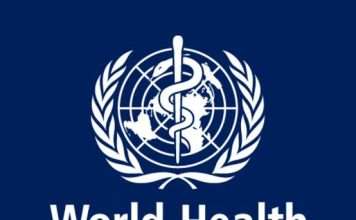The World Health Organization (WHO) has confirmed that member countries have agreed to continue refining the draft of a proposed pandemic treaty, ahead of the 77th World Health Assembly scheduled for May 27, 2024.
Discussions, both in-person and hybrid, will resume in the coming weeks to address key issues, such as establishing a global system for sharing pathogen access and benefits, enhancing pandemic prevention efforts, and improving global health coordination and financial support to strengthen countries’ preparedness and response capacities for future pandemics.
WHO Director-General Dr. Tedros Ghebreyesus applauded Member Nations for their steadfast commitment to creating a transformative agreement aimed at safeguarding the world from the devastating impacts of future pandemics, like the COVID-19 crisis.
“I, therefore, welcome the determination that all countries have shown to continue their work and fulfil the mission on which they embarked,” he added.
The World Health Organization’s leader emphasized that the Intergovernmental Negotiating Body, comprised of Member States, was formed over two years ago to advance this initiative.
The INB Bureau, responsible for overseeing the process, will submit its findings for consideration at the World Health Assembly.
Dr. Precious Matsoso, Co-Chair of the INB Bureau from South Africa, reported substantial progress in the latest round of discussions, covering a broad range of issues in the draft agreement.
“We are witnessing history play out before our eyes during this process with the coming together of all countries to decide on a binding pact to protect all citizens of the world,” she mentioned.
Dr. Matsoso noted that the endeavor is complex and unprecedented, as it marks the first time a global agreement on pandemic prevention, preparedness, and response is being developed through a collaborative process.
“Getting this done means getting it right, and the INB Bureau is committed to helping finalise a meaningful, lasting agreement,” she assured.
According to Mr. Roland Driece, Co-Chair of the INB Bureau from the Netherlands, when countries initiated the process two years ago to develop a pandemic agreement, they were aware that they had set a challenging deadline to achieve a lofty objective, and they did so with the understanding that it would require a concerted effort to meet the ambitious timeline and goal.
“This unprecedented effort by all WHO Member States was launched in response to an unprecedented global emergency – the COVID-19 pandemic,” he stated.
Mr. Driece stated that countries acknowledged the need for unprecedented collaboration and coordination in responding to pandemics, which led them to initiate this process.
Although the negotiations have been difficult at times, there is a shared understanding among all nations that the world must improve its preparedness for future pandemics, and this collective commitment drives the effort forward.
“It is not a matter of if a pandemic will happen again; it is a matter of when. We cannot afford to miss this historic opportunity to make the world safer from the next pandemic threat,” Driece said.
In March 2021, leaders from 24 countries committed to global collaboration to prepare for, prevent, and respond to pandemics.
Later, in December 2021, WHO Member States decided to launch a global process to draft and negotiate a legally binding agreement to strengthen pandemic prevention, preparedness, and response. This agreement aims to protect future generations from pandemics.
